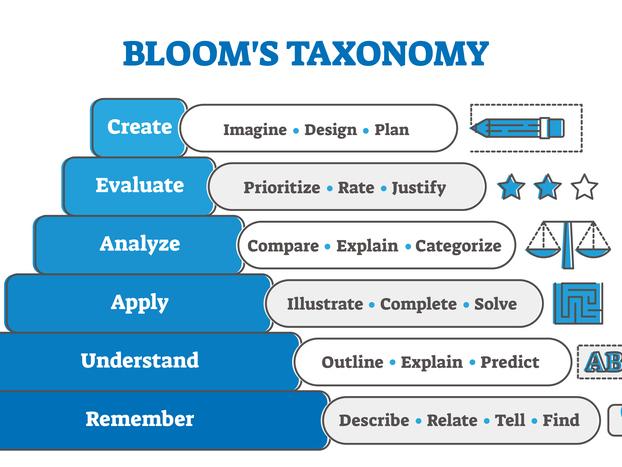A significant proportion of academic journals are published in English, and many international academic conferences are also conducted in English. As such, non-native English speakers often face difficulties in preparing manuscripts in acceptable professional English that pertain to their research areas. Even for native English speakers such as myself, manuscript preparation will not always be free of grammatical errors.
Sometimes, achieving the expected degree of clarity and coherence in our writing can be challenging. In this article, I will share my personal experience with ChatGPT and how it has shaped my academic writings, and I will address some of the ethical concerns associated with using AI language models such as ChatGPT in manuscript preparation.
- Collection: AI transformers like ChatGPT are here, so what next?
- Should we trust students in the age of generative AI?
- Embracing generative AI as a co-design partner for designing and developing courses
When I was first introduced to ChatGPT, I was immediately fascinated by its capability for assisting with improving writing clarity. When preparing manuscripts, I often found it difficult to write flawlessly because my cognitive processing speed exceeded my reading or writing speed. This can cause, for example, the skipping of words in sections that I have already processed cognitively. ChatGPT has proved to be a valuable tool, helping me to enhance the quality of my writing by providing suggestions, refining sentence structures and offering alternatives to missing or specific words.
To make the most of ChatGPT, I explored various resources and online communities to learn about its capabilities and how best to use it. By combining my own knowledge and experience with ChatGPT’s assistance, I have minimised typographical and grammatical errors significantly and improved the clarity and coherence of my academic writing.
While ChatGPT appears promising for helping to improve manuscript clarity and minimise errors, without proper human supervision the output might contain elements of AI-generated text. This has raised concerns and diminished the credibility of some research manuscript outputs.
The misuse of AI-generated text has led to the development of similarity checkers to detect text generated by AI. Using ChatGPT solely for proofreading purposes could introduce AI-generated text if there is a lack of necessary human oversight, because the AI is able to change words or phrases based on its trained algorithm, which could jeopardise the credibility of the author.
To help address the issue of AI-generated text when using ChatGPT for manuscript editing services, users must provide specific instructions (prompts) that prevent the algorithm from generating AI text.
First, users will need to understand the characteristics of language and writing, including tone, style, clarity, syntax, register, dialect and domain. To improve the manuscript, the ChatGPT algorithm is trained to replace words or phrases that occur frequently in a sequence of words. This is based on the combinations of words or phrases that are contained in the algorithm’s training dataset. In essence, ChatGPT mimics the arrangement of words or phrases that most writers use often. However, human writing may, of course, include words or phrases that occur less frequently.
By incorporating the following approach, researchers can maintain both clarity and ethical standards.
To improve clarity, instruct ChatGPT to prioritise using words or phrases that occur with medium-to-low probability in the algorithm’s training dataset. This helps maintain human writing intent and author’s voice, while also enhancing the overall quality of the text.
Further approaches for maintaining the ethical credibility of a manuscript when using ChatGPT for editing services include:
1. If you wish to use ChatGPT for editing, including clarity, the instruction should have a phrase such as “for clarity, prioritise words or phrases with lower-probability occurrences in a sequence of words. If not available, use words with medium-probability occurrences.” This provides explicit guidance to ChatGPT, ensuring that the generated text aligns with the desired level of clarity and coherence while avoiding over-reliance on high-probability words.
2. Or you can ask ChatGPT to “improve the clarity of my manuscript by suggesting alternative words or phrases”. You can then selectively accept or reject these suggestions, giving you the flexibility to maintain control over the content while also leveraging the AI model’s capabilities.
An example of the prompt given to ChatGPT for proofreading this piece are as follows:
Request: Proofread and improve clarity of the manuscript.
Context: For clarity improvement, use only medium-probability-occurring words or phrases for generating the next word in a sequence of words.
Tone and domain: Academic magazine.
Language: Use British English.
As we learn more about the relationship between the effectiveness of ChatGPT and the quality of user-provided prompts, it becomes clear that careful attention to prompt construction is essential for optimising manuscripts and ethical integrity. Specifically, aligning the purpose, target audience, desired outcome and constraints of your ChatGPT prompt with your academic writing goals will help you create a more coherent and ethically sound manuscript. The level of detail and specificity in the prompt can also significantly influence the text generated by ChatGPT, so it is important to have human oversight to ensure ethical credibility.
By strategically designing prompts that are aligned with your research goals and employing guidelines for maintaining ethical standards, such as instructing ChatGPT to prioritise medium-to-low probability language structures, researchers can effectively harness ChatGPT’s capabilities to enhance both the clarity and the ethical standing of their academic writings.
ChatGPT is a powerful tool, but it is important to use it carefully and ethically. By providing specific instructions to ChatGPT and carefully reviewing the output, researchers can minimise the risk of introducing AI-generated text into their manuscripts.
Ikenna Uwanuakwa is an assistant professor teaching in the Department of Civil Engineering at Near East University in North Cyprus.
If you would like advice and insight from academics and university staff delivered direct to your inbox each week, sign up for the Campus newsletter.




comment